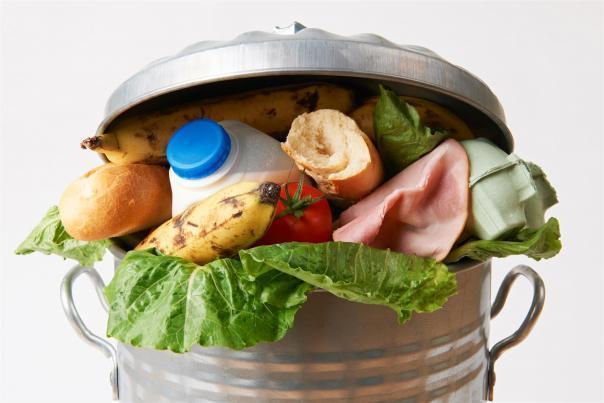
Annually, the UK wastes approximately 9.5m tonnes of food, with 60% coming from households and the other 40% from manufacturing and the hospitality industry.
Poultry is the 8th most wasted food, cheese and potatoes are in the top five, with a staggering 750,000 tonnes of potatoes going to waste annually. Having said that, fresh vegetables and salad secure the top spot, with 1.3m tonnes of perfectly edible food going to waste.
There are many reasons why food is wasted throughout the entire supply chain. Farms may produce more food than is needed depending on the success of harvests.
Manufacturing facilities can overestimate demand, especially during the festive season when planning is difficult. And inefficient transportation and issues at storage facilities mean food may become damaged or spoiled before being sold, contributing to food waste.
Retailers have specific expectations when it comes to the appearance of food products such as fruit and vegetables. This means that ‘wonky’ looking food can often go to waste.
The amount of edible excess food that is redistributed to charities or food banks is shockingly low. In fact, only 7% of the total food surplus in the UK retail and manufacturing sectors is currently being redistributed.
Households also contribute to food waste. People tend to buy and use more food than needed. A huge 25% of the food we cook ends up wasted because we prepare, cook, or serve too much.
Another problem with overbuying is consumers either incorrectly store or leave food uneaten until it is spoiled. Some consumers are confused by ‘best before’ and ‘use by’ dates, consequently throwing away safe-to-eat food, thereby contributing to food waste.
The environmental impact of food
About 23% of total UK food system greenhouse gas emissions are linked to the production and distribution of food that becomes waste. During the festive season, our dining habits exacerbate the problem.
Livestock farming is much more resource-intensive than vegetable production.
A meal with roast ham can use up to 70% of a person’s daily carbon budget versus just 14% for a veg-focused meal. Also according to WRAP, the UK aims to halve food waste by 2030, but new approaches are critical as consumer awareness of sustainability grows.
A collaborative approach through standards
Standards provide a framework for stakeholders across the supply chain to work collaboratively. BSI can help organisations benchmark impacts, set goals aligned with UN Sustainable Development Goals (SDGs) and develop educational materials promoting best practices.
Strategies for trimming food waste
Climate change, consumer expectations and media attention are all putting pressure on organisations to address the sustainability of their supply chains. There are numerous strategies businesses can adopt to reduce food waste.
Farms could invest in innovative technologies such as precision and vertical farming to help monitor crop growth, optimise efficiency and increase output quality, all whilst minimising environmental impacts.
Manufacturers need to develop clear and accurate labelling to help consumers understand product storage instructions, expiration dates, and portion sizes.
Large amounts of waste can be collected and disposed of by a licensed waste carrier. Organisations such as Fresco Environmental can collect your food waste and convert it into biogas or animal feed, which avoids waste going to landfills.
Standards establish best practices for handling, processing, and storing food. They provide guidelines on quality management, inventory management, and traceability, ensuring that food is handled properly at each stage.
Farms can take advantage of subscription box service companies, such as Wonky Veg Boxes, who deliver imperfect yet edible food straight to consumers.
More than half (57%) of UK shoppers say they would like brands to help them be more resourceful with their food. To do this, businesses can run in-store, on-pack or out-of-home activations to help raise awareness of food waste and encourage consumers to be more mindful of this.
To help redistribute surplus food that otherwise would go to waste, businesses can partner with food waste charities such as FareShare, which redistributes surplus food to 8,500 charities throughout the UK. It recently partnered with The Coronation Food Project, inspired by King Charles, which seeks to unlock more surplus food for redistribution by bringing senior figures from across the UK food industry together to share their surplus, underutilised and donated resources.
The role of BSI
BSI’s expertise and involvement in standards development and stakeholder collaboration are instrumental in driving impactful change. By aligning waste reduction strategies with standards and leveraging BSI’s guidance, businesses can enhance their sustainability efforts, reduce food waste, and contribute to a more resource-efficient future. For more information about how BSI can help your business visit: https://www.bsigroup.com/en-GB/